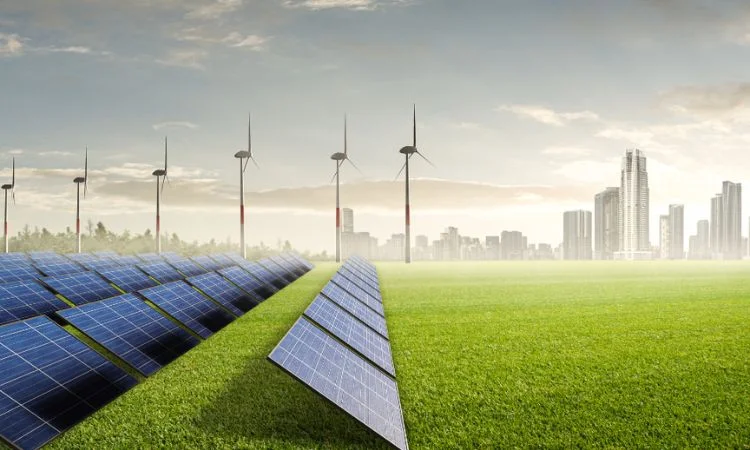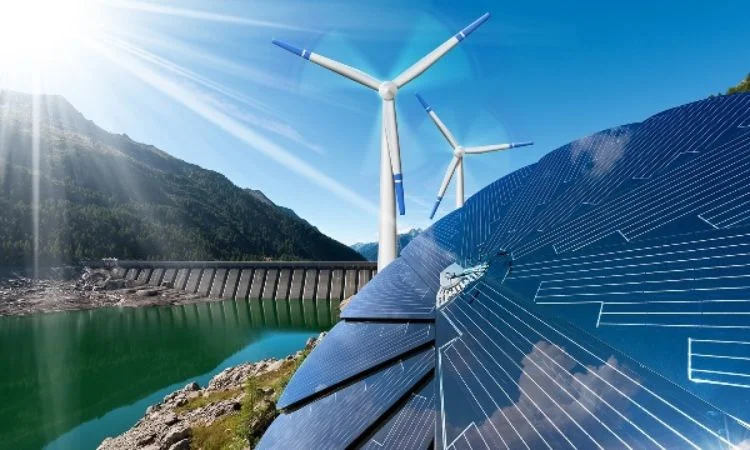We are in the month of June 2024, which should be indicating the onset of monsoon. Interestingly, our weather application reads temperatures as it can be felt in summer. India is witnessing temperatures as high as 48℃, if not more. This is outrageous as it comes to working outdoors and bringing food on the family table. But our desires and temptations to hold onto habits that could cause environmental hazards are now taking a toll on us. Generally speaking, rising climate concerns is a global issue, and world leaders are working together to draft policies for green energy alternatives, exploring the potential of artificial intelligence in green energy.
Table of Content-
- How can AI help in advocating seamless clean energy shifts?
- The fossil fuel industry can save costs with AI.
- Diversification in AI is the key.
Over the past decade, rising pollution from auto vehicles, plastic material, landfills, ocean waste, weakening recycling management and many others have posed a major question of our integrity and contribution to save mother nature. The environmental issues are way beyond the textbook that would come as a surprise to us and wake our civic duties. Scientists have been relentless in figuring out new breakthroughs that could enhance our quality of life and evolve our society into a sustainable powerhouse.

Source: Google Images
With the help of researchers and experts from STEM fields, civilization has been encountering remarkable achievements in innovation and technological developments. To understand from a more root level, our society is not encircled with just scientists or experts.
They are the advocates of positive change. But the most part of an economy is thriving with the ordinary citizenry, whose objective could be to grow in career and co-exist in a peaceful community. They are the true architects of impact and we are looking up to them.
When it comes to technology in 2024, the world is witnessing the possibilities of Artificial Intelligence (AI). Amidst the hard work of the entrepreneurs, scientists and experts, work of an AI and clean energy could reshape the world into a transcendental sustainable ecosystem.
As per reports, the AI renewable market was valued at about $10 billion in 2022. In the decade, this valuation can cross $114.87 billion with an expected CAGR of 27.7%.
The shift towards green energy, powered by Artificial Intelligence, is an imperative approach towards global economic prosperity, employment and productivity. Reports suggest that energy transition could increase at a significant rate. Regions worldwide like India, North America, Europe, China and many others will experience this shift.
How Can Artificial Intelligence in Green Energy Advocate Seamless Clean Energy Shifts?
Artificial Intelligence in the green energy industry comes with a plethora of technologies. It can be considered as a pinnacle of innovation in our times as AI can work as an effective enabler for the consumers. Green energy is gradually rising as a cost effective measure to tackle rising energy demands. With artificial intelligence, experts indicate that it could also streamline maintenance costs.

Source: Google Images
Artificial Intelligence in the green energy industry can be empowered through automated decision-making. This could indicate computer systems to process high amounts of complex data with minimal or no human assisting in the process. When it comes to aided decision-making, humans make the process better, with the data provided by artificial intelligence. This helps in collaboration of human expertise with AI analysis.
Big data is helping businesses focus more into analytics and they note information from satellites and weather reading stations. These data could help us understand more about solar radiation which is aligned with the supply of green energy generations.
It is riveting to understand that Artificial Intelligence is reading data with terabytes sizes on consumer behavior on energy. This is helping analyze deeply about the magnitude of energy requirements. The right balance over the supply and demand of clean energy can tackle any power outages.

Source: Google Images
In India, artificial intelligence in the green energy sector has faced several challenges in infrastructure. This is in regards to solar-powered systems that have faced multiple roadblocks in adoption. But with AI, reports indicate that effective solutions can be procured to minimize costs.
As per data, an investment worth US $3 trillion has been allocated toward clean energy till 2030. Data suggests that wires and relevant infrastructures are being built to provide seamless and accessible power supply to the consumers. Experts indicate that artificial intelligence in the green energy industry is already helping companies understand metrics like location, wire sizes and strategic planning when it comes to bolstering a robust clean energy ecosystem.
It is evident that these wires would run for thousands of kilometers and understanding any possible point of repairs is a tedious task. But with the help of machine learning softwares, companies can identify wiring anomalies and transformer failures, which will ultimately become cost-effective. Reports indicate that a 5% savings in energy expenditure could be a savings of about $150 billion in the next few years.
The Fossil Fuels Industry Can Save Costs with Artificial Intelligence in Green Energy
This comes hardly as a surprise that AI is also helpful in the fossil fuel industry. AI is an open technology that is similar to that of the internet. But the expertise to harness this technology is a matter of great significance.
Companies like BP, Exxon and many others are leveraging the possibilities of artificial intelligence to reduce cost while extracting their products like oil and gas. Autonomous vehicles, powered by AI, are being reported to work on gasoline. With less cost to churn out fossil fuel, travel can become cheaper and more accessible.

Source: Google Images
AI models run on huge power and training them can be an energy demanding process. The rising energy requirement of data centers is leveling itself with consumption figures of entire countries like Brazil, Germany and several others, as per report. In 2022, data indicates that energy consumption of data centers touched about 460 terawatt hours.
Diversification in AI is the key
As per report, a firm in the US holds about 80% of the AI chip market. There are a few top-tier firms which have the capacity to make AI function in its true potential with the help of their computational expertise, datasets and existing technological infrastructure. In the goal to transition energy, there are a select few nations which have the capital and technological ecosystem to leverage AI.
- This could result in an imbalance of AI usage, leading to less accessibility of the technology. Countries worldwide should collaborate with each other in forwarding policies and reforms which could ultimately help in creative effective business models on artificial intelligence.
- Artificial Intelligence in the green energy sector could also navigate towards impressive growth in energy storage. Systems that are smart and store energy can integrate itself into the energy grid, thus moving towards effective energy management. Data suggests that the energy storage industry could increase twentyfold in the next few years or so.
Interestingly, energy storage is creating virtual energy plants, which provides precise power when required, thus minimizing energy shortfalls. This could express that there could be an alternative to building new power plants.
India is a vast and diverse country with a broad range of climate conditions. Experts indicate that artificial intelligence should be tuned to work according to the regions in the country. Additionally, focusing on a micro-grid setting is pivotal for rural regions, where electricity can be a challenging task. With tailored innovations from AI, it can act as a catalyst towards a sustainable green energy for India.
The importance of data in 2024 is greater than ever before. With better access to the internet, information passing has been productive than ever. But with the exchange and fostering of insightful data, comes certain ethical conduct. There are also rising reports of cybercrime, data-theft and many similar concerns. Reforms and policies should be exercised by the governments to ensure data security and privacy from unauthorized individuals or groups.
Conclusion-
Artificial Intelligence is at its budding stage. Most importantly, it is one of the industries in 2024 that is starting on a low-carbon footprint. The world now has the entrepreneurial spectrum to become advocates of green energy. The top companies around the globe have been reported to take bold steps in achieving net zero. Oftentimes, these companies are working with major investors and stakeholders, who are also acknowledging the societal ethics of artificial intelligence.
This along with environmental safeguard could be the key to harness the next phase of technological growth in the history of civilization. But companies, investors, governments and we, the people, should be alert while preserving the dignity of the environment. Lower emissions could mean a better future and it would enrich the society for the next generations.
Today, as we are synergizing our rationale with current technologies like artificial intelligence, it is pivotal to empower positive change. As our efforts today in excelling our technologies shall ensure the conclusive outcome for decades to come.















